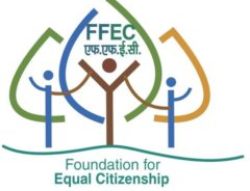Exploring Culinary Delights: Cooking Demonstration Classes at Our Women’s Center
Cooking is an ecstatic way of expressing yourself. It is more than just nourishment, it’s an art form that fetches people together. Foundation For Equal Citizenship’s Mahila Centre is the epitome of strength, resilience, knowledge and creativity. Cooking demonstration classes are conducted every week so that women get the knowledge they deserve.
The programme is run by Shaheen Baji and demonstration classes are executed by Al Saba. These classes provide a platform for women to explore new flavours, techniques, and recipes in a very inclusive environment. Women from every age group become a part of these vibrant classes.
FFEC believes in rendering the finest knowledge and mastery so that the future is bright and luminous. The session comprises almost 40 passionate women who have the thrill of learning something. The pedagogy of these classes believes in imbibing nutritional knowledge at a low budget. This means the mentors prepare budget-friendly meal ideas for pregnant, lactating, and anaemic ladies.
These classes are way more than just about food. They are a celebration of empowerment and self-discovery. As women come together they share joy, giggle, laughter, knowledge, never-ending stories and a lot more. This inclusivity builds a robust community. Through hands-on learning and interactive demonstrations, ladies gain the confidence to unleash their creativity and express themselves. These classes are followed by a competitive spirit where competitions are conducted.
Nutrition as everyone is aware helps curb the wasting in children and stunting. FFEC’s Mahila centre takes note of this and works constantly to bestow the knowledge of nutrition under budget.
The most rewarding aspect of these classes is the opportunity to share the pleasure of cooking with others. As these women hone their skills and discover budget-friendly healthy recipes, they become masters of flavours, spreading the culinary facet in their families.
Some delicious, budget-friendly dishes including energy choco bar, healthy makhana ball, sesame or jaggery laddu, Bajra churma laddu, poha, peanut chaat, healthy namkeen and moonglet have been prepared to date. From cooking to learning, FFEC’s community is growing and glowing. At our mahila centre, cooking is more than just a skill, it’s a gateway to empowerment and a progressive society.
As FFEC embark on a journey to strengthen the project ‘BUNIYAAD’, it also aspires to grow the community and inject exemplary knowledge. FFEC believes in providing practical exposure along with the theory. Women here enjoy themselves to the fullest and apply this skill set in their daily lives.





